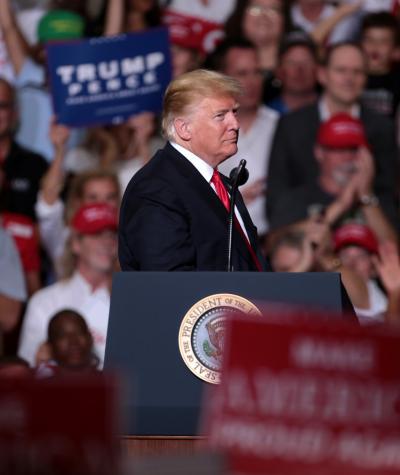Soft money – money raised and spent on federal elections that doesn’t comply with federal campaign finance laws – undermines transparency and accountability in our elections.
A new supplemental complaint filed by Campaign Legal Center (CLC) and NRDC Action Votes with the Federal Election Commission (FEC) provides additional information in connection with the allegation that former President Donald Trump and Save America, his leadership PAC, violated the Federal Election Campaign Act (FECA), which prohibits candidates from raising and spending soft money.
CLC first raised these allegations in a complaint filed in November 2022. According to CLC’s initial complaint, Trump transferred $20 million worth of soft money from Save America to Make America Great Again, Inc. – a super PAC that spent millions to influence the 2022 midterm elections and has continued to spend in support of Trump’s presidential candidacy in the 2024 election cycle.
Disclosure reports filed after the initial complaint revealed that the amount of soft money unlawfully transferred from the leadership PAC to the super PAC totals $60 million dollars, triple the amount alleged in CLC’s initial complaint.
Under the Bipartisan Campaign Reform Act of 2002 (BCRA, also sometimes referred to as McCain-Feingold), which became part of FECA, federal candidates and any associated entities like leadership PACs are prohibited from using soft money in connection with a federal election. Because Trump had determined to run for president — as evidenced by his public statements and activities — and had raised and spent more than $5,000 in support of his candidacy, he was a candidate under FECA at the time of the $60 million transfer and was therefore subject to FECA’s soft money restrictions.
FECA’s soft money prohibitions have been a critical safeguard against corruption and preserving electoral transparency by preventing federal officeholders and candidates from using soft money when running for federal office.
Federal contribution limits and source prohibitions protect against creating a “pay-to-play” style of politics that could serve to increase the influence of wealthy special interests at the expense of transparency and even erode public trust in our elections. Public disclosure requirements ensure that voters know who is raising and spending money to influence federal elections.
Soft money essentially undermines all of these crucial protections because it evades them entirely. That’s why enforcing the rules prohibiting soft money is so important.
Unfortunately, due to deadlock between current FEC commissioners, several officials running for Congressional office and the presidency have not been held accountable for violating soft money prohibitions in recent years, which could possibly revert us back to the pre-BCRA era in which the use of soft money was a widespread practice.
If the agency that is tasked with enforcing federal campaign finance laws continues to allow federal candidates like former President Trump to evade these laws, other candidates may follow suit, and the public remains deprived of information on election spending as special interests spend millions to influence our elections.
Soft money undermines the values of transparency, accountability and anti-corruption that are foundational to our elections. The FEC is responsible for enforcing federal campaign finance laws and must act to hold Trump and Save America accountable.

